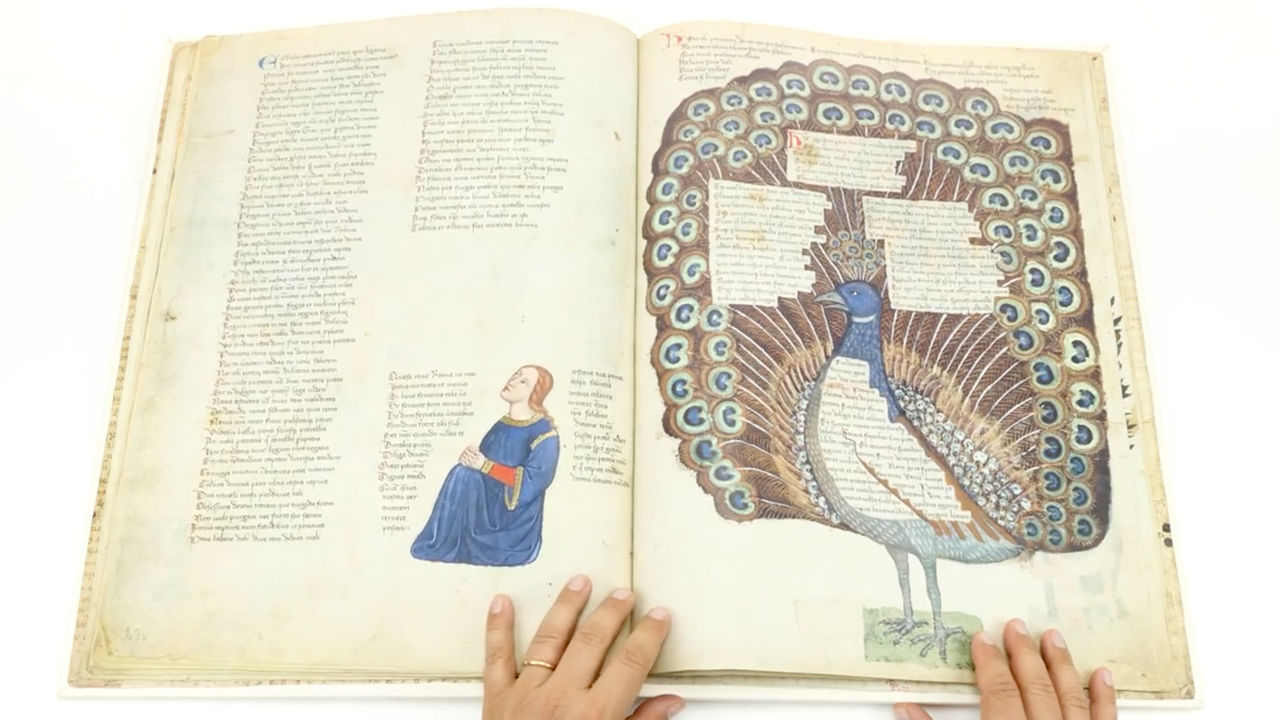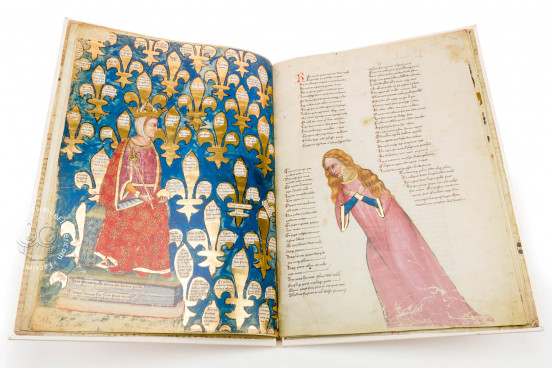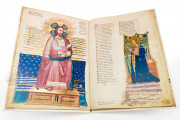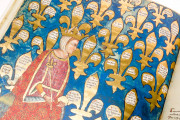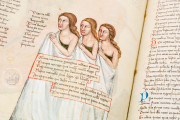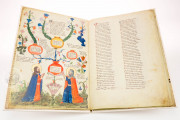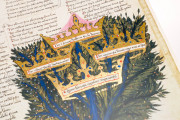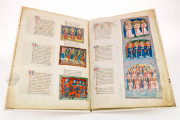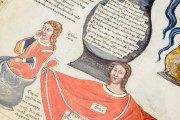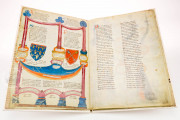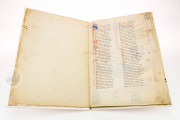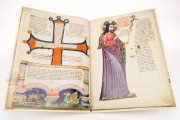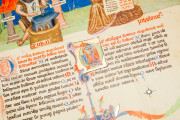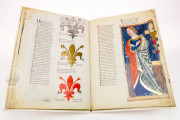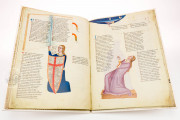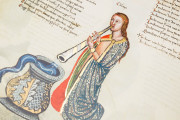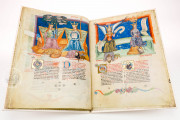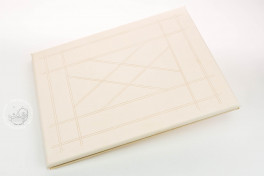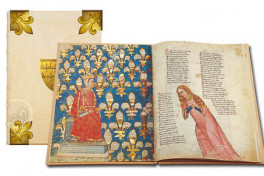The Poem of Praise for Robert of Anjou, King of Naples between 1278 and 1343, is a historical document preserved in the Austrian National Library.
The large manuscript was made in the fourteenth century, probably around 1340, in Southern Italy and contains a text describing and exalting the power of the king. The poem, written in prose and rhyme, features Robert of Anjou as the ideal ruler, able to lead Italy and ensure better conditions in a country that at that time was torn apart.
The author of the text criticizes the Papal absence during his exile in Avignon between 1309 and 1379.
The manuscript is an exceptional witness of the medieval understanding of the power of the ruler and, at the same time, it stands out for its artistic value within the context of the fourteenth-century illumination.
The Poem of Praise for King Robert of Anjou
The 43 large miniatures decorating the codex illustrate the Poem of Praise for King Robert of Anjou, a panegyric dedicated to the king who is celebrated as the savior of the Church and the ideal ruler of Italy.
Convenevole da Prato (c.1275-1338), poet, scholar, and teacher of Francesco Petrarca, composed this text of eulogy for the king, employing a literary genre known in Latin as Regia Carmina. The illuminations represent the ideal state of the king as described in the text.
The allegory of the good government is explained through the representations of Christian figures along with the female personification of Italy, and mythological figures from Antiquity. The king is featured as the ruler chosen by God. He has the duty of unifying Italy.
Refined Miniatures Evoke the Celestial Inspiration of the Power of the Ruler
A second section of the codex consists of a collection of texts by St. Augustine supporting the king Robert of Anjou as the best ruler of Italy; the four cardinal virtues and the representations of the arts provide the ideal of the righteousness of the ideal government.
Throughout the manuscript, the miniatures enhance the role of the king by comparing the celestial realm to the role of the king on earth. Along with the miniatures, the manuscript displays decorated initials over gold background. A deerskin binding protects the manuscript.
The center and the edges of the front cover show four golden fleur-de-lys, the emblem of the Anjou family. Rare to find in manuscripts, the codex retains two clasps used to lock the book and make it more precious.
We have 2 facsimiles of the manuscript "Poem of Praise for King Robert of Anjou":
- Das Lobgedicht auf Koenig Robert von Anjou (Standard Edition) facsimile edition published by Akademische Druck- u. Verlagsanstalt (ADEVA), 2008
- Das Lobgedicht auf Koenig Robert von Anjou (Deluxe Edition) facsimile edition published by Akademische Druck- u. Verlagsanstalt (ADEVA), 2008

